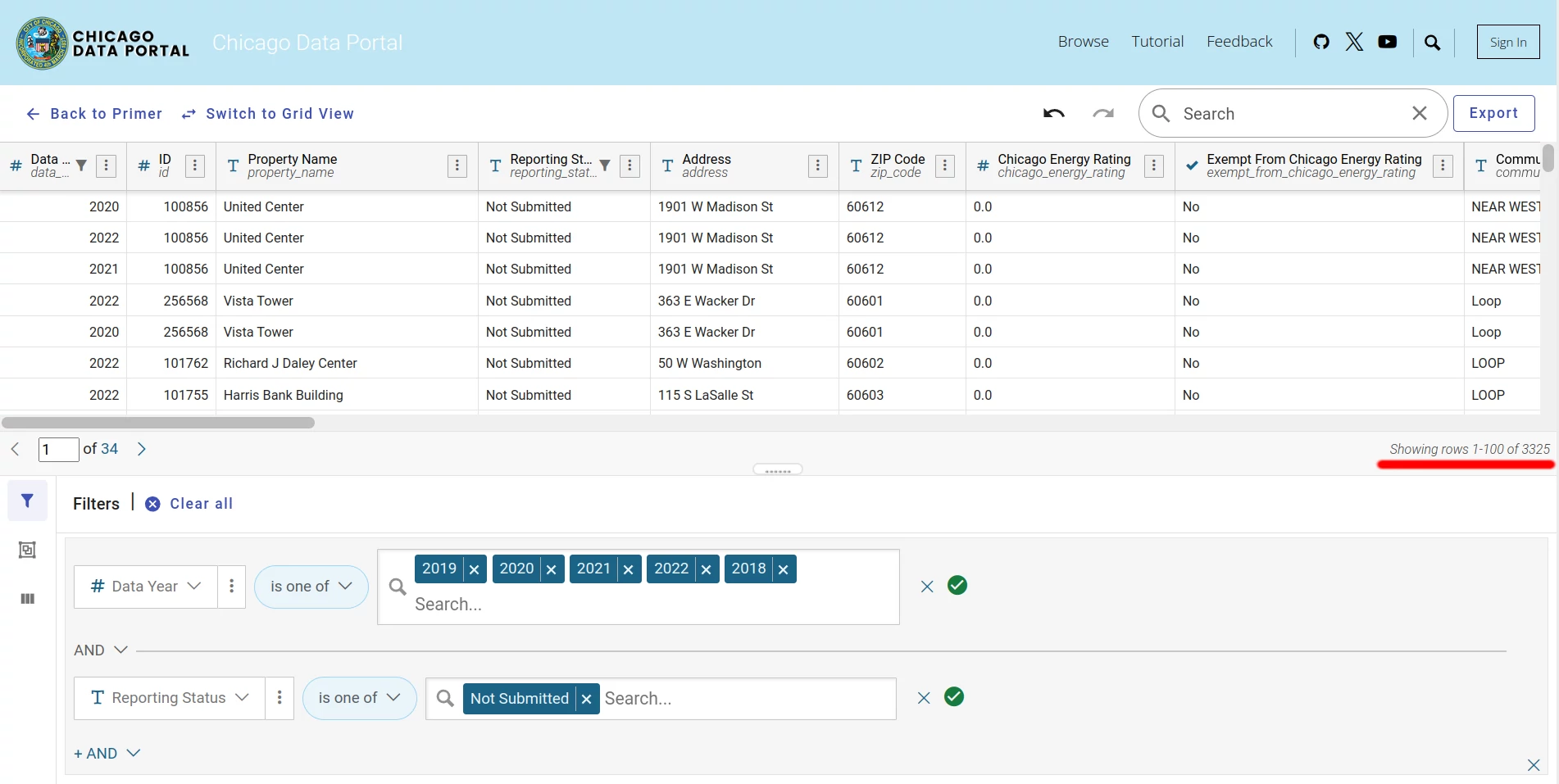City Of Chicago Failed to Collect $30 Million In Potential Fines from Building Benchmarking Ordinance
Not Enforcing The Benchmarking Ordinance's Fines From 2018 - 2022 Reduced Accountability & Transparency
Electrify Chicago has analyzed the last five years of city benchmark data, and found
3,325 instances of building owners not submitting data. Based on the
latest (2024) official notification letter fines for non-compliance could total up to $9,200 per year.

A screenshot of the energy benchmarking notification letter's section on fines, as of
Feb. 2024 (source )
With a maximum of $9,200 of fines multiplied by 3,325 instances of non-compliance
(source - City of Chicago data portal ), that
means a whopping $30,590,000 dollars of fines could have been collected
by the city's commissioner of business affairs and consumer protection (who is given
this responsibility in the
original ordinance).


The full data portal screenshot, and a zoomed in view of the query result count (source )
A Freedom of Information Act (FOIA) request submitted to the city's Department of Business Affairs and Consumer Protections, which is charged with enforcing the benchmarking ordinance, returned no recorded instances of the ordinance being enforced.
Why This Matters
Without consequences for non-reporting, building owners who perform poorly can simply opt
out of reporting their data. Some owners of very large and culturally significant buildings
have consistently not submitted. As an example, view
2023's largest non reporting buildings in the data portal . Not having all building owners report means the goals of the ordinance aren't being
met, and the public loses out on valuable information for buildings that could be emitting
the most or be the least efficient. The city may also believe that it is on track with its
climate goals, when there are still large buildings that are emitting but have their
emissions not reported or not reported accurately, like if a building reports their
electricity use but not their natural gas use.
To put this $30 million in potential fines into context, zin the 2024 budget, $25.3 million
was suggested to be put towards lead line replacement, meaning these potential fines could
have fully funded that program in 2024
(source - City of Chicago 2024 Budget Overview ).
Next Steps
An older version of the energy benchmarking notification (source - WayBackMachine )
did not contain any information about potential fines, and merely by updating the
notification letter to make sure that building owners are aware of the consequences for not
reporting, the reporting rate is likely to improve. However, we believe it is crucial the
city then follow through and fine any owners who choose to ignore repeated requests to
report their energy use, in keeping with the original ordinance. We also believe that
larger fines may be necessary to get the owners of very large and inefficient buildings
to report their emissions, rather than to obscure their pollution from the public.
Additionally, we recommend the city consider adding more granular data requirements to the data portal to help building emissions data be more clear and helpful. This includes ensuring that all electric buildings are clearly reported, distinct from buildings that reported electric but not gas use, and considering requesting information about a building's HVAC system, since that can be the driving factor in a buildings emissions profile, and a building that uses gas only for cooking should be identifiable from a building using gas for heating and cooling as well.
Questions?
Contact the lead developer on this site, Viktor Köves, by emailing contact@viktorkoves.com